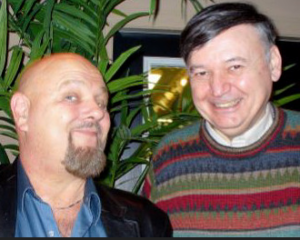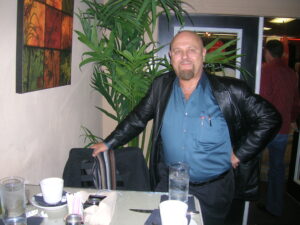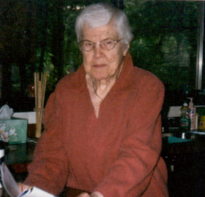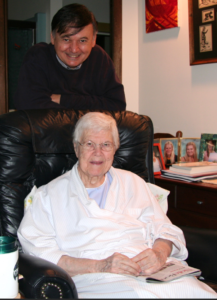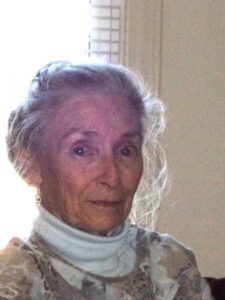Saturday, April 27, 2024
5:05 a.m. Mt friends, I have decided that if we resume our regular chats, I want us to work on the summary book together. I will do my best to steer it by questions – and I will hope that others will contribute questions as well – only this time we will work on explicit ground rules (which, of course, may change as things develop). This time we’re going to produce entries for the blog and for email lists, but with the understanding that I may change things extensively when it comes time to produce extended discourse. That is, I may rewrite.
It was never our intent that you reproduce us as if being a scribe and an acolyte or even a translator. We told you that repeatedly.
You did. But doing it my way left a record – a more or less verbatim record – documenting the process. From here we will concentrate on a clearer exposition. I consider that if this process hasn’t been demonstrated on the record by now, there is nothing more we can do by way of demonstration.
Well, we never fought you on the idea, merely reminded you that the restriction was on your end, not on ours.
True. So, to work? Let us address ourselves to the eventual reader. That will reduce the burden of rephrasing when it comes to putting it together.
So, first question: What is the practical use of changing our view of the way the world works? Life has plenty of obvious and serious problems. Why divert ourselves by trying to know what can’t be known?
If it couldn’t be known, there would be force in the question. It’s true, “Life is real, life is earnest, and the grave is not its goal.” [Longfellow] But consider.
- Is it true that “the way the world works” can’t be known?
- Is it true that, if it can be known, the question is not practical?
We would say that the answer to the first question depends entirely upon one’s definitions of “known.” It can be known, enough to be of use, as we will show. And the second question is an easy, “Yes it is practical to ask.” And we will give our reasons why it is practical.
As to knowing the meaning of life – which is the same question, really, as knowing how the world works:
What do you mean by “knowing”? The same word may mean different things. There is the knowing that can be established by scientific instrumentation, testing a hypothesis to see if it can be falsified. Clearly this kind of knowing is not what we mean.
On the other end of the scale is the knowing that relies entirely on “what feels right.” This strictly intuitive approach is legitimate, but it has its pitfalls and its limits. We can’t rely on individual intuition to provide us with the answers to the meaning of life, to the way the world functions. Because it is individual, it is subject to psychological vagaries that not only may send you off the track, but in any case may make it terribly hard to communicate with your fellows. What is true for one may provide sure guidance in life for that one. Yet what is true for one may not be at all true for another.
The most productive approach to investigation lies between these two extremes, or is an alternation between them, or uses one to correct the other. This may seem a very insecure platform to rely on, but perhaps it is more reliable than it seems at first sight.
The first rule of investigation is to measure by the tools proper to the matter being examined. You don’t do psychological testing to see if a given geological area was the product of certain physical phenomena. Similarly, you don’t measure weight, density, etc. to see if human life has purpose. The right tool for the right job.
It isn’t like the questions haven’t been asked over the years. Why are we here? What is the meaning of life? Is there a God? What should we do with our lives?
- Some ask these questions relying heavily upon logic and thought, using other people’s previous answers as data, but subjecting everything to the test of logic. You call such inquiries philosophy.
- Some ask as the result of personal experience (painful or ecstatic) or strictly out of a burning curiosity, and their investigation relies heavily upon other people’s testimony about their own experiences. This is the part of religion that attempts to trace what reality is, not the part that attempts to deduce or transmit what this implies (or commands) about human conduct. You call this theology.
- An intermediate discipline attempts to come at the truth by taking personal testimony seriously – as evidence of the human mind’s functioning, not necessarily as evidence that what that mind concludes is correct. It also applies thought and logic to that data, and you call it psychology.
There are other approaches as well, but they are all variants of the two extremes, science and religion, and the intermediate position of psychology.
Using these methods of inquiry, yes, the world can be known. Human life can be understood. Only, bear in mind, true understanding will not produce only one answer.
This may seem contradictory: How can there be more than one truth? But in fact, truth has so many facets that it can never be known in full. It can only be known from a given viewpoint. Every different viewpoint will show truth in a somewhat different perspective.
Perspective – the necessary result of viewpoint – produces different partial views, none of them necessarily “wrong,” or even “incomplete” or “misleading” – provided that you remember that they are partial views, not one (impossible) comprehensible 360-degree view. Try to imagine a view that sees not only 360 degrees around the horizon, but also every 360-degree view that can be drawn through every degree of altitude from the horizon to the zenith. It can’t be done. The only way to get to such a comprehensive view is to leave 3D limitations and move to a non-linear – non-3D – framework. But this you cannot do while still in the body. You may be able to conceive of it, you will be unable to accomplish it, any more than a rifleman could shoot in all directions at once.
But just because you cannot get a universal view beyond viewpoint, doesn’t mean you can’t get all you need, because (as we will show in its proper place) you represent a viewpoint. You are one bit of data out of the entirety. Just as you are not everybody, so your viewpoint cannot be everybody’s, and this is as it should be. But the one bit is valuable, and if you will think holistically, you will understand that every bit contains the whole.
Next time we will show why it is practical to ask these larger questions.
This seems to have worked well. Thanks.
